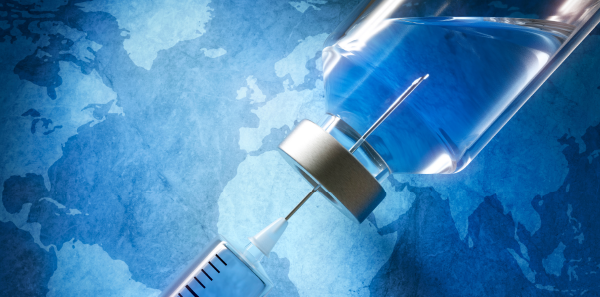
The pandemic is splitting in two. In the United States, case numbers have plummeted, thanks to a remarkable vaccine rollout. For the first time since the pandemic began, I didn’t see a single COVID-19 patient during my last shift in the New York City emergency department where I work. As emergency physicians, many of us spent the last year at the epicenter of this pandemic. We never want to be there again.
Explore This Issue
ACEP Now: Vol 40 – No 06 – June 2021More than ever, people now recognize emergency physicians for our hard-earned frontline expertise. Colleagues, friends, and relatives are likely to ask you what we can do now to help bring the COVID-19 pandemic to an end worldwide so that the smallest number of people are harmed and we don’t end up facing a new wave of infections that are impervious to our vaccines.
The answer: We must keep advocating for public health, even though the gravest risk to our fellow Americans is, we believe, in the past.
While COVID-19 caseloads have declined in the United States, our colleagues in emergency departments around the world are being tested harder than ever before. In the last few weeks, there were more new COVID-19 cases worldwide than the entire first six months of the pandemic. Tragically, there will be more COVID-19 deaths in 2021 than in 2020.
Despite this, only 0.3 percent of all COVID-19 vaccines are going to low-income countries. The vast majority of doses are going to wealthy countries like the United States. Global vaccine inequity is profound. Approximately 75 percent of all vaccine doses administered have occurred in just 10 countries. Some countries have yet to receive a single dose to date.
Now that we’ve vaccinated a large percentage of the eligible population here, we need to think about how to help vaccinate the world. President Joe Biden has vowed the United States will provide an “arsenal of vaccines” for the world. There are significant humanitarian, public health, and economic reasons for the United States to lead the global effort, even as the pandemic ebbs here at home.
The United States has already made some laudable commitments. Recently, the White House announced it would send 20 million doses of the three Food and Drug Administration–authorized vaccines (Pfizer-BioNTech, Moderna, and Johnson & Johnson) abroad by the end of June. That comes in addition to 60 million doses of AstraZeneca vaccine (which is not currently authorized for use in the United States). Furthermore, the United States has been the largest financial contributor to COVAX, the global vaccine equity effort spearheaded by the World Health Organization.
But we can and must do more.
Pages: 1 2 3 | Single Page




No Responses to “Other Nations Deserve Their Shot”